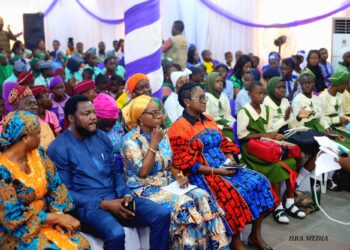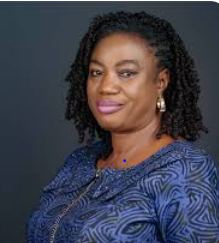
More than half of adults who were abused as children experience domestic abuse in later life, new analysis shows, as reports of child abuse soar in the UK.
Adults who witnessed domestic abuse as a child in their home were also more likely to experience abuse by a partner as an adult – at 34 per cent compared with 11 per cent who did not witness domestic abuse.
Data from the Crime Survey for England and Wales 2016 shows that around one in five adults aged 16 to 59 — an estimated 6.2 million people — experienced some form of abuse as a child.
Analysis of the data by the Office for National Statistics (ONS) reveals that roughly one in six adults who were abused as a child experienced domestic abuse in the previous year. Young adults aged between 16 and 24 who were abused during childhood were most likely to be victims.
Those who survived more than one type of child abuse were more likely to experience domestic abuse as an adult than those who survived fewer types of child abuse, the analysis found.
Victims of all four types of child abuse — physical abuse, sexual abuse, emotional or psychological abuse and neglect — were more likely to suffer domestic abuse, with 77 per cent experiencing domestic abuse after the age of 16, compared with 40 per cent who experienced one type of abuse as a child.
The findings showed that more than one in three (36 per cent) of those who experienced abuse by a family member as a child were abused by a partner as an adult.
Almost a third (31 per cent) of adults who were abused as a child meanwhile reported being sexually assaulted as an adult, compared with seven per cent of those who did not experience abuse as a child.
Women who were survivors of child abuse were four times more likely to experience sexual assault after the age of 16 than male survivors – at 43 per cent compared with 11 per cent.
More than half (57 per cent) of female survivors of child abuse experienced domestic abuse as an adult, compared with 41 per cent of men.
Overall, women were five times more likely to suffer sexual assault as an adult than men – at 20 per cent compared with four per cent — and twice as likely to experience domestic abuse, at 26 per cent compared with 14 per cent.
The analysis also shows that more than one in 10 (12 per cent) adult survivors of childhood abuse were more likely to have taken illegal drugs in the last year, compared with eight per cent of those who had not experienced abuse as a child.
They were also almost twice as likely to report having a long-standing illness or disability – with illness or disabilities affecting more than a quarter (28 per cent) of child abuse victims, compared with 15 per cent of those who didn’t experience abuse.
At the same time, 78 per cent of child abuse survivors said their health, in general, was “very good” or “good”, compared with 87 per cent of those who did not experience abuse as a child.
The findings come as a concern at a time when reports of children affected by domestic abuse have soared by 77 per cent in four years, according to figures released by child protection charity the NSPCC last week.
The charity received a record number of calls from adults concerned about violent and abusive behaviour around children last year, reaching 4,749 – up more than three quarters from 2012/13.
The Government has meanwhile been criticised by Ofsted for doing “far too little” to prevent domestic abuse and support child victims, which accused ministers of failing to implement a long-term strategy to tackle the issue — which accounts for around one in 10 of all crimes committed in England and claims the lives of two people each week.
Responding to the latest findings, a spokesman for the NSPCC said: “A child’s experience of abuse must never dictate their future, which is why we work directly with victims to help them recover and get their lives back on track.
“Although survivors may bear the scars of their experiences, this should not define who they are.
“Swift mental health support, resources for police to investigate child abusers, and a society that knows what abuse is and will step in if they suspect it can all help survivors go on to lead happy, fulfilled, lives.”
A Government spokesperson said: “The Government wants to help people who want to get back into work, particularly if they have taken time out for caring responsibilities.
“We have introduced shared parental leave, new rights to request flexible working, and doubling free childcare to ensure that we are tackling the barriers for mothers who want to return to work.
“We want to help even more people who want return to work to be able to do so, which is why we are investing £5m to increase opportunities for people returning to work after caring for those at home, and have launched new returner programmes across the public sector.”
More than half of adults abused as children experience domestic abuse in later life, show statistics
0
Leave a Reply Cancel reply
BROWSE BY CATEGORIES
- #SmartLagos
- Basketball
- Beauty
- Boxing
- Breaking
- Business
- Careers
- Crime
- Default
- Education
- Entertainment
- Event
- Fashion
- Featured
- Football
- Gaming
- Gist
- Golf
- Health
- Inspirational Patience
- Interview
- Investigative
- Law
- Lifestyle
- local
- MetroMan
- MetroPerson
- metroplus
- MetroProfile
- Movies
- MUSIC
- Music
- New Music
- News
- nolly wood
- Nollywood
- Novels
- Odawood
- Opinion
- Parenting
- Photos
- Politics
- Press Release
- Relationship
- Religion
- Scandal
- Security
- Sex
- Society
- Sports
- Technology
- Travel
- TV
- Videos
- Weird
- Wheels
- World
BROWSE BY TOPICS
#COVID19Nigeria
#EndSARS
Adams Oshiomhole
Akinwunmi Ambode
APC
ASUU
atiku
Atiku Abubakar
boko haram
Buhari
Bukola Saraki
CBN
court
COVID-19
crime
davido
ECOWAS
Edo Election
Edo State Election
efcc
Featured
FG
Goodluck Jonathan
gunmen
INEC
Kayode Fayemi
Lagos
Lagos State
Muhammadu Buhari
NCDC
NDLEA
news
Niger
Nigeria
NLC
Obaseki
PDP
police
politics
President Buhari
Sanwo Olu
senate
tinubu
wike
Yemi Osinbajo
© Copyright MetroNews NG 2020. All rights reserved.








